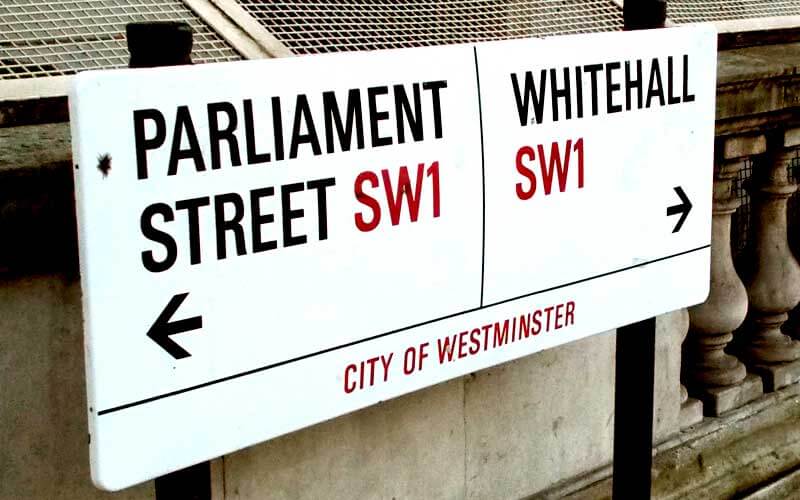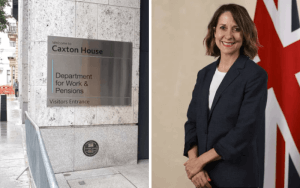Ministers have broken a pledge made in their National Disability Strategy to set up a taskforce of disabled people’s organisations (DPOs) that would help them access more government contracts, by allowing non-user-led charities to join the group.
The strategy pledged last July that the Cabinet Office would create a “Disability Commissioning Taskforce of disabled people’s user-led organisations to improve disability organisations’ access to government contracts”.
But information released to Disability News Service by the Cabinet Office under the Freedom of Information Act shows that at least three of the members of the new taskforce are organisations that are not run and controlled by disabled people.
Whereas DPOs such as Breakthrough UK, Disability Positive, Equal Lives and Disabled Motoring UK have been invited to join the taskforce, so have two of the largest non-user-led charities, Leonard Cheshire and Mencap.
Leonard Cheshire already has an annual income of about £150 million, while Mencap’s was more than £230 million in 2020-21.
Mencap’s business development manager Mark Capper was present at the taskforce’s first meeting in January, as was Leonard Cheshire’s chief executive Ruth Owen, although she is herself a disabled person.
Ministers have also allowed the British Association for Supported Employment (BASE) to join the taskforce.
BASE describes itself as the “national voice for providers of specialist employment support”, with members including councils, colleges, charities, providers of segregated employment, and charities.
Lynne Turnbull, chief executive of Disability Positive (formerly Cheshire Centre for Independent living), said she would be asking the government why non-DPOs were invited to the first meeting and to restrict future meetings solely to DPOs.
She said that DPOs often report how public bodies are commissioning private providers that do not represent disabled people and how this can “threaten our very existence”.
She said: “We were disappointed that despite the commitment from government for this taskforce to be ‘of disabled people’s user-led organisations’, meeting invitations had been widened to include national disability charities.
“However, I am pleased that the DPOs present were able to use the opportunity to reinforce the importance of co-designing services with disabled people and their representative organisations, and highlight some of the challenges that disabled people’s organisations face.”
Ben Reed, chief executive of Equal Lives, another of the DPOs that attended, said: “I was surprised to see certain large non-user-led providers put on an equal footing as DPOs.
“It would be interesting to know more about the process of how organisations invited were chosen to participate.”
A Cabinet Office spokesperson refused to explain how the government justified breaking its commitment in the national strategy.
But he said in a statement: “The majority of the Disability Commissioning Taskforce are disabled people’s user-led organisations (DPULOs).
“It is critical that the taskforce brings together a range of perspectives which is why members are also from organisations that work with DPULOs.
“The taskforce will work with the voluntary, community and social enterprise crown representative, Claire Dove, to identify and understand the barriers disability organisations face when trying to secure public sector contracts, and then propose solutions.”
The National Disability Strategy has already been declared unlawful by the high court, because a national consultation carried out while ministers were preparing the document was also found to be unlawful.
And in January, DNS revealed that at least six of the actions the government promised in the strategy would be carried out by the end of 2021 had not been completed, including action on tackling disability hate crime, the accessible housing crisis, disability employment and how the government engages with disabled people.
A note from the editor:
Please consider making a voluntary financial contribution to support the work of DNS and allow it to continue producing independent, carefully-researched news stories that focus on the lives and rights of disabled people and their user-led organisations.
Please do not contribute if you cannot afford to do so, and please note that DNS is not a charity. It is run and owned by disabled journalist John Pring and has been from its launch in April 2009.
Thank you for anything you can do to support the work of DNS…

 Ministers are secretly considering means-testing PIP, DWP admits, despite pledge in green paper
Ministers are secretly considering means-testing PIP, DWP admits, despite pledge in green paper DWP’s unlawful silence on ‘critical friend’ report raises questions over minister’s transparency pledge
DWP’s unlawful silence on ‘critical friend’ report raises questions over minister’s transparency pledge DWP cannot say how many disabled people it is sanctioning, despite plans for conditions on many more claimants
DWP cannot say how many disabled people it is sanctioning, despite plans for conditions on many more claimants